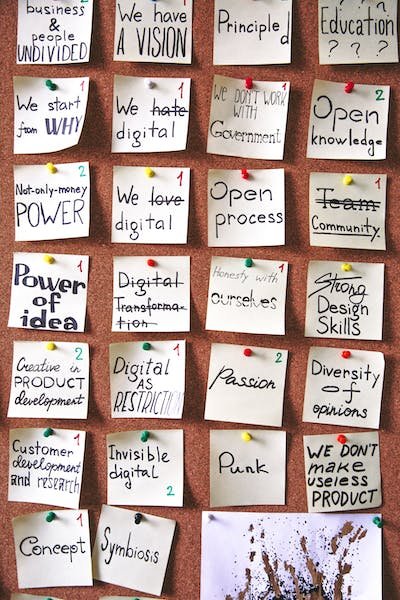Ideation is linked to creativity and that creative skill can be used in business wisely. A good number of people are only transitional in their functiinal routines for the most part and are likely to become too traditional with it that it stifles their progressions in today's pace changing market. Transitions that catch many off guard due to lack of regenerating prospective ideas and putting them to practice as one would anticipate.
Changing in accordance to what isn't visible to the eyes in commerce can sound ironical as oppose to envisioning things with the mind. Suppose that's how things work then changes would have to occur first before we follow suit. It's definitely not the case so resourcefulness can come as a result of letting our insightful whims manifest by focusing it on what we are doing.
Tendency on both ends
Conceptualization has a its weighing effects in the reassessment of thoughts with regards to certain factors like how the current situation relate to the idea and whether there's a strong system in place serving as foundation.
It's easier to come up with an idea than implementing it so that may be the case with having ample ideas and at worst not able to apply any. Here's where a control over our imaginations becomes benefitial to the specificity of dealing with something unique. On the same note, there's the tendency to proceed with a strong will, believing that things will actually work out or that it wouldn't at a cost as we journey between the two extremes.
Reasoning: Optimization/Stabilizing
There must be a reason for the ideation backed by intent which is based on analysis and the current operational standing. Encountering lapses where regaining a grip on things and on a steady flow where peaking is the goal both apply differently. The whole trip from generation to application rests on what's already in place. Stabilizing or optimizing a business operation via idealism may be the basis of high efficiency inclusions with enhancement tools and services like automations, AI appliances and outsourcing opportunities as major examples.
The realization in differentiating the two has to do with data collection, identification of issues, improvisation and finally valuating the idea's application - the analyst role.
Refinement in feedback
Feedback has a way of revealing hidden aspects of a plan or at least an initially inapparent side. As clarity in seeing an idea from a different perspective, proper review by others after sketching a plan will provide a hint for the necessary adjustments.
In feedbacks hints of the missing pieces could include research on the external factors as potential influencers on the idea presented which is relatable to the internal analysis stated above.
Conclusion
In keeping in touch with the fickle market conditions and leading a stable business vigilant moderation is important. Individual ideation needs reviewing and the backing of others for its validity to be well recognised.
Ideally, it's a long journey from ideating to actualizing and while some are good at the latter others are best suited for executing ideas.


